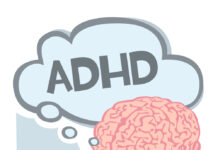Peer-Support Groups Were Right, Guidelines Were Wrong: Dr. Mark Horowitz on Tapering Off Antidepressants
In an interview with MIA, Dr. Horowitz discusses his recent article on why tapering off antidepressants can take months or even years.
MIA Survey: Ex-patients Tell of Force, Trauma and Sexual Abuse in America’s Mental Hospitals
In a MIA survey of people who had been patients in mental hospitals, nearly 500 respondents told of an experience that was often traumatic, and frequently characterized by a violation of their legal rights, forced treatment with drugs, and physical or sexual abuse. Only 17% said they were “satisfied” with the “quality of the psychiatric treatment” they received.
Transcranial Magnetic Stimulation No Better Than Placebo for Treatment-Resistant Depression
A new study in JAMA Psychiatry found that transcranial magnetic stimulation was no better than placebo for treatment-resistant depression.
Suicide Rates Rise While Antidepressant Use Climbs
Multiple media sources are reporting on new data from the CDC revealing a substantial increase in the suicide rate in the United States between 1999...
Do Antidepressants Work? A People’s Review of the Evidence
After a meta-analysis of RCTs of antidepressants was published in Lancet, psychiatry stated that it proved that "antidepressants" work. However, effectiveness studies of real-world patients reveal the opposite: the medications increase the likelihood that patients will become chronically depressed, and disabled by the disorder.
Berlin Manifesto for Humane Psychiatry Released
Changing the mental health and psychosocial support system in Germany requires public debate about the ways our society should help and support people in mental crisis and with chronic mental health problems. We believe the driving force behind all help and support should be humanitarianism and respect for inalienable human rights.
Antidepressants Do Not Prevent Suicides, May Increase Risk
When the CDC released data revealing an increasing suicide rate in the US, some experts, speaking to major media outlets, speculated that the increase...
Will the European Elections Be a Chance for Mental Health?
European citizens from 27 different countries will soon go to the polls to elect their representatives in the European Parliament for the next five years. As an advocacy organisation, we see those elections as an opportunity to call on current and future European leaders and policymakers to bring mental health to the heart of European policies.
55 Steps to Informed Consent
55 Steps is a new film based on a true story that centers around two women: Collette, a lawyer with a tendency to work long hours, and Eleanor, who has spent far too much time incarcerated in hospitals. Over the course of five years, Collette fights for Eleanor’s right to choose whether or not she takes psychiatric drugs. This film is imperfect, but its importance can’t be ignored.
Comments by Shock Survivors and Their Loved Ones
The #FDAStopTheShockDevice petition has received over 2,200 signatures and 800+ comments. A more thorough analysis of those comments is forthcoming, however, we wanted to offer a glimpse of what people shared. The sixth, seventh, and eighth most common words used in the comments submitted through the petition were "damage," "barbaric" and "torture." We must continue the fight to make sure that the FDA hears the people who will be adversely affected by the proposed rule if it becomes an order. There is still a small window of time for you to sign the petition and leave a comment to the FDA.
New Study Casts Doubt on Efficacy of Ketamine for Depression
A new study, published this month in the Journal of Affective Disorders, investigated the effectiveness of weekly intravenous ketamine injections as a treatment for...
New Study Investigates Negative Side Effects of Therapy
Researchers find that nearly half of cognitive behavioral therapy (CBT) patients experience treatment side effects.
Cognitive Impairment from Long-Term Benzodiazepine Use Remains Even After Drug Withdrawal
Long-term benzodiazepine use shown to effect cognitive function during current use and for years after drug discontinuation.
Is Long-term Use of Benzodiazepines a Risk for Cancer?
A large study of the population in Taiwan reveals that long-term use of benzodiazepine drugs, commonly prescribed for anxiety, significantly increases the risk for brain, colorectal, and lung cancers. The research, published open-access in the journal Medicine, also identifies the types of benzodiazepines that carry the greatest cancer risk.
Antipsychotics Associated with High Risk of Death in Children
A new study has found that children and adolescents taking a high dose of antipsychotics are almost twice as likely to die of any cause than children on other types of medications.
Seeking Justice
My life flashed before my eyes as my entire medical history over the last decade was rewritten from having a genetic brain disease to being a victim of a medical scam. It was bittersweet, for I realized that I was not sick and dying, but I had been robbed of so many years of my life due to the psychiatrist’s lies. Now I am suing my former psychiatrist for damages.
Very Slow Tapering Best For Antidepressant Withdrawal
A new article in Lancet Psychiatry finds that slower tapering of SSRIs is better for preventing antidepressant withdrawal effects.
Violence Caused by Antidepressants: An Update after Munich
The media is now reporting details about the 18-year-old who shot and killed nine and wounded many others before killing himself on July 22 in Munich. My clinical and forensic experience leads to a distinction among people who murder under the influence of psychiatric drugs. Those who kill only one or two people, or close family members, often have little or no history of mental disturbance and violent tendencies. The drug itself seems like the sole cause of the violent outburst. On the other hand, most of those who commit mass violence while taking psychiatric drugs often have a long history of mental disturbance and sometimes violence. For these people, the mental health system seems to have provoked increasing violence without recognizing the danger.
Ensuring Integrity of Studies: Analysis of the Dan Markingson Case
Dan Markingson was a 26-year-old mentally ill young man who violently killed himself in 2004 while enrolled in a drug-sponsored study of atypical antipsychotics among persons experiencing psychosis for the first time. Highly vulnerable individuals like Markingson should not be taken advantage of in the name of scientific research, and inability to protect such vulnerable subjects compromises the integrity of research.
Lancet Psychiatry’s Controversial ADHD Study: Errors, Criticism, and Responses
Amid calls for a retraction, Lancet Psychiatry publishes articles criticizing the original finding and a response from the authors.
The FDA Is Hiding Reports Linking Psych Drugs to Homicides
In my wildest dreams, I could never have imagined being drawn into a story of intrigue involving my own government’s efforts to hide, from the public, reports of psychiatric drugs associated with cases of murder, including homicides committed by youth on the drugs. But that is precisely the intrigue I now find myself enmeshed in.
Psychotropic Medications Serve as Powerful Tools for U.S. Military, Imperialism
Ethnographic research sheds light on extensive psychopharmaceutical use by soldiers in post 9/11 U.S. wars.
NICE Guideline Update Acknowledges Severe Antidepressant Withdrawal
A new update to the NICE guideline for depression suggests providers discuss long-term, severe antidepressant withdrawal symptoms.
Long-term Usage of ADHD Drugs Linked to Growth Suppression
Findings suggest that treatment not only fails to reduce the severity of “ADHD” symptoms in adulthood but is associated with decreased height.
Scientists Clarify Risks of Augmenting with Antipsychotic Medications for Depression
The researchers found that while antipsychotic drugs may be slightly more effective than alternative antidepressants, they come with a much higher side effect burden.






























